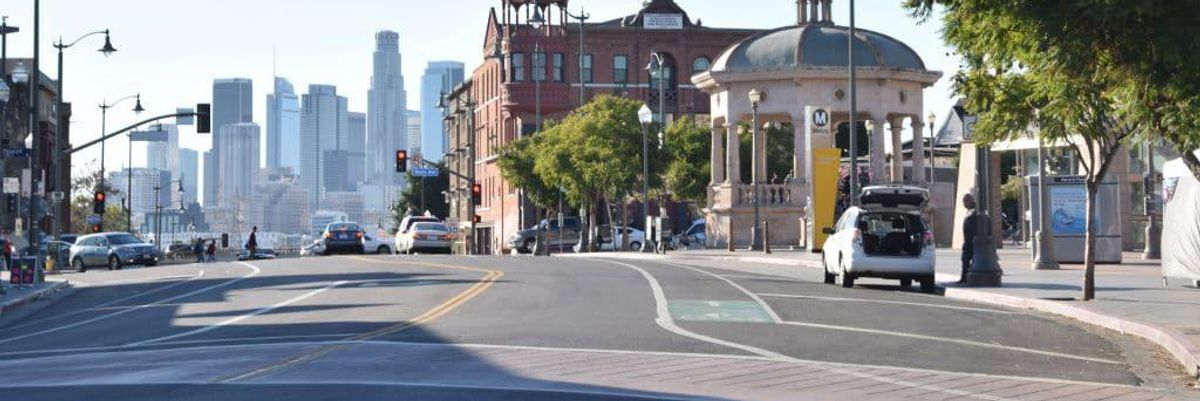Housing Development Alone is Not Enough to Address Economic Inequity

We are in the midst of both a continued health pandemic unlike anything any of us has experienced in our lifetime, and a reckoning with entrenched systems of racism. This moment has shone a spotlight on the vital importance of neighborhood-based community development organizations (NBCDCs). By embracing the expertise, power, and solutions that are found within the neighborhoods themselves, these types of organizations are leading the way to ensure communities of color are not left behind.
Despite its civil rights origins, it is noted in “A Brief History of Community Economic Development,” that the community development field over time started to be a less community-focused field and instead starting focusing on the development of housing. But development alone is not enough to address economic inequity, and it can blindly further systems of racial erasure and oppression.
“The lives and opportunities available to low-income residents in Latino and other communities of color do not improve just by building housing,” says Maria Cabildo, co-founder and former Executive Director of East LA Community Corporation in Boyle Heights. “Neighborhood-based community development corporations understand this and make long-term commitments to community residents that expand opportunity through services, advocacy, and organizing that results in more equitable systems.” This NBCDC model centers the people who live, work and celebrate in a neighborhood by identifying their most pressing needs and creating solutions.
Excellent work has been happening in Los Angeles through a coalition of NBCDCs. In 2009, four NBCDCs – Coalition for Responsible Community Development, East LA Community Corporation, Esperanza Community Housing Corporation, Little Tokyo Service Center, and one public interest law firm, Public Counsel, came together to leverage their resources and advocate for neighborhood-based change in the diverse neighborhoods of Vernon-Central, Boyle Heights and East LA, South Central, and Little Tokyo. Like too many communities of color across the country, these are neighborhoods at risk of erasure and displacement due to gentrification.
Today, the challenges faced by these neighborhoods are even greater, but these NBCDCs are at the center of some of the most critical community and economic development work happening in Los Angeles. In response to COVID-19, the Healthy LA Coalition, which includes several NBCDCs, is leading local advocacy efforts to advance policy solutions to the hardships caused by the pandemic. To date, over 20 critical protections have been adopted by the City and County to promote housing stability, worker protections, small business protections, and protections for unhoused residents. This broad range of recommendations that are responsive to local community needs reflects the value that NBCDCs can add.
After successfully fighting for the decriminalization and legalization of street vending in both the City of Los Angeles and statewide, the LA Street Vendor Campaign has provided over 800 street vendors with emergency cash aid. This type of direct cash assistance is crucial, especially because many street vendors are shut out of federal economic relief.
The full extent to which the pandemic will impact Black, Latinx, Asian and Indigenous communities across the country is yet to be seen; but it is clear these communities will likely be the hardest hit. People of color are already disproportionately infected and killed by COVID-19; and are also more economically insecure. Successful economic stabilization and recovery is not and cannot be defined just by how many units of housing are built. Not only does this ignore the racial justice history of community development, more importantly, it ignores what the present moment is calling for: to think deeply about systems of inequity and creatively act to rebuild a truly equitable world. NBCDCs illustrate equity in practice by staying connected, responsive and accountable to neighborhoods and the people in them. For local governments and foundations looking to invest in and create equitable communities, NBCDCs should be your first stop. For Latinas looking to be a part of equitable change, engage locally and donate to, volunteer with, and uplift the work done by neighborhood-based community organizations in the places you care about.


 Photo by
Photo by  Photo by
Photo by  Photo by
Photo by  Photo by
Photo by  Photo by
Photo by  a group of monarch butterflies on a treePhoto by
a group of monarch butterflies on a treePhoto by 

